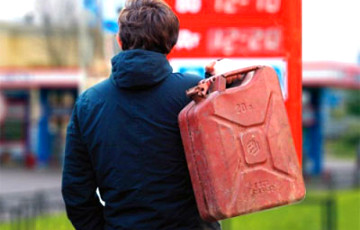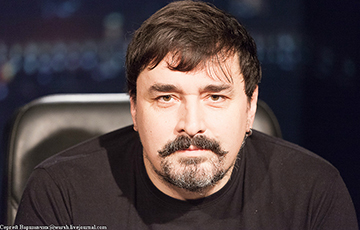The Russian Economy Is Threatened By A "fuel Shock"
3- 17.07.2025, 17:16
- 5,192

Rosstat has recorded a sharp acceleration in the growth of gasoline prices.
Fuel inflation has once again begun to accelerate sharply in the Russian economy, according to statistics from Rosstat.
In the week of July 8-15, retail gasoline prices in the country rose by 0.4%, the strongest jump since the beginning of the year. For comparison: in January-May, on average, gasoline rose in price every week by about 0.1%. In late June, price growth accelerated to 0.2% per week, and by mid-July it had doubled further, The Moscow Times reports.
The rising gasoline price is the "main shock" in Rosstat's inflation data, MMI analysts wrote. On an annualized basis, gas station price increases held above 11% for the sixth consecutive month. These are record values since 2018, when the fuel crisis gripped the country.
It seems that Russian refineries have serious problems with fuel production, MMI does not rule out. There is no reliable data on gasoline output in the country: the authorities classified the statistics last May after a series of Ukrainian drone strikes on oil refineries, which caused production to collapse by 20%.
The refineries are having problems with repairs due to Western sanctions, Energy Minister Sergei Tsivilev admitted, speaking at the Federation Council on Wednesday. "Why are there sometimes failures? Because now, in the sanctions regime we are in: let's say, for example, it is scheduled for repairs for 4 months, but we were delayed something, something was underdelivered," Tsivilev justified himself.
Petrol in retail is becoming more expensive following the prices on the wholesale market, which began to rise sharply in April. For incomplete four months the cost of Ai-92 on the St. Petersburg commodity exchange soared by 29% and now exceeds 65 thousand rubles per ton, and Ai-95 became more expensive by 28% - 73.8 thousand rubles per ton.
As compared to the beginning of the year wholesale prices jumped by more than 30%, and the government again began to discuss the possibility of a complete ban on the export of gasoline from the country. As Interfax sources told us, they are talking about tightening the restrictions already in place. Now it is forbidden to export gasoline to traders, intermediaries and oil depots. Under the new rules, gasoline producers, including the largest oil state corporations, may be left without exports.
Benzene is becoming more expensive as supplies are being cut, Reuters sources among oil traders told Reuters earlier: in June, the Astrakhan gas processing plant and Gazprom's Surgut refinery stopped for repairs, and the Kuibyshev refinery is scheduled for repairs in July.
In addition, the fact that the government is reducing subsidies to oil companies to keep gasoline in the country cheap, points out the general director of Open Oil Market Sergey Tereshkin: in the first quarter oil companies received 405 billion rubles for the damper, and in the second quarter - only 139.7 billion.
"The reduction in subsidies is caused by the fall in oil prices, which led to a decline in "external" prices for petroleum products, which are taken into account in the damper formula. The lower the volume of subsidies, the lower the refining margins. The losses can be recovered only by increasing exchange prices, which is what happened in June and July 2025," he said.











